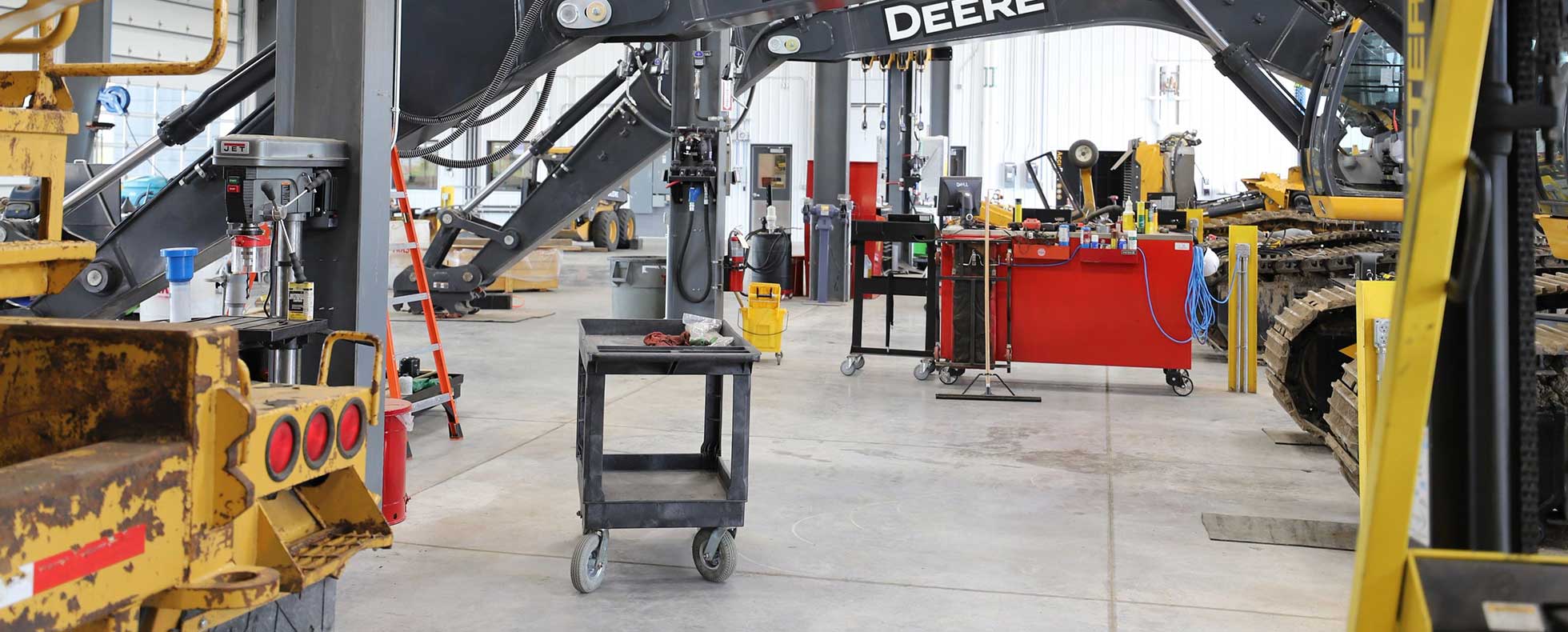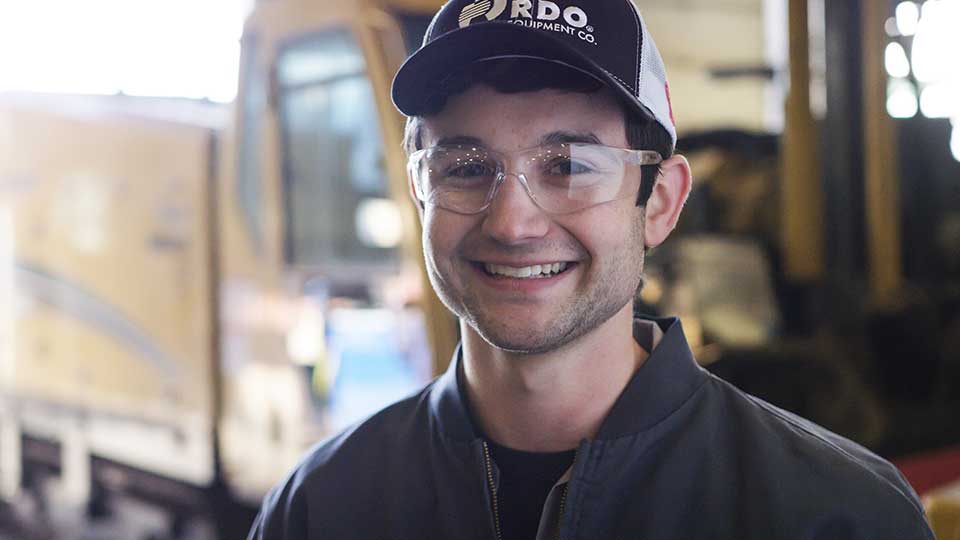
As you explore your employment options as a diesel mechanic, there are many things to consider. First, what kind of equipment and machinery will you be working on? Is there enough variety?
Next, things like location, training and support come into play. How does each company stack up?
Another primary consideration is the company’s size. This can impact other factors like training resources, tool incentives and growth opportunities. It can also affect job satisfaction and change your daily experiences.
Here at RDO Equipment Co., we’re a large heavy equipment dealership — with more than 80 stores across 12 states. While we take pride in creating a tight-knit, supportive culture throughout our organization, we understand there are some realities that come with being a larger company that don’t accompany smaller organizations.
You deserve to work for a heavy equipment dealership that fits your needs and aspirations.
To help you weigh your options when the time comes, this article outlines some upsides and potential downsides of working for a smaller heavy equipment dealership instead of a bigger one.
Diesel mechanics are the lifeblood of heavy equipment dealerships. Often (in healthy organizations), a large chunk of revenue is tied to the service departments.
For this reason, talented technicians are in high demand, giving you plenty of options. Here’s what you’ll potentially (every company is different) get when opting for a smaller dealership group.
Smaller companies typically have less structure than larger ones. As businesses grow, the systems, structures and procedures required to operate them effectively often increase.
Where a larger company might have strict procedures for performing work, evaluating team member impact and meeting deadlines, a smaller company might not.
Consider a smaller dealership if you’re a technician who prefers less structure in your workday (maybe even less procedural oversight).
Note: This is not always the case — sometimes, small companies are just as strict and structured as larger ones.
If you like seeing where your company is headed, where growth is happening and how your work directly impacts its future, a small heavy equipment dealership might present this more readily.
At a large company, it’s not uncommon for technicians to feel disconnected from the company’s leadership and direction. This is especially the case when the organization doesn’t make an effort to loop team members into these things.
For example, at a small dealership, you might be able to walk into the Owner’s office whenever you want. This is harder to do when your company has many stores or operates in multiple regions.
Moving pieces is another big one. When companies grow, the pace of work can often slow down.
As layers are added to an organization (managers, departments, procedures), this can create speedbumps and prevent certain things from happening as quickly as before.
Maybe more people are involved in the decision-making process on a job you’re working on, or perhaps you need to wait for approval from a leader in another department.
Whatever the case, expect a more streamlined work environment (in some ways) with a small employer.
Working for a small company is great for many diesel technicians. However, it’s not necessarily the right fit for everyone.
While the connection between these mechanics and the streamlined processes is a great advantage, let’s talk about some potential downsides compared to a larger employer.
If job stability is important to you, working for a small heavy equipment dealership group could be riskier than working for a larger one.
Though not always the case, larger dealers are often more diversified than smaller ones. This creates stability through the ups and downs of the heavy equipment market. You could end up without a job at a small dealership when things take a turn.
Beyond this, small dealerships have fewer resources than large companies. From a diesel mechanic’s perspective, this can mean less access to training courses/personnel, specialty tooling and other benefits like tool reimbursements and boot allowances.

This is also an important point. If you’re a diesel technician who wants to constantly learn new things, test your skills and improve, a small company might not be the right fit. When a dealership is small, that usually means it’s more specialized — selling and servicing select lines of machinery.
Larger companies might have more resources, contracts and a broader customer base, which creates opportunities for you to work on a more diverse set of machinery.
Just because it’s the job you’re doing now doesn’t mean it’s the job you’ll be doing forever. Though this is a tough thing to remember, it rings true here.
Small heavy equipment dealerships can offer great career paths, allowing diesel technicians to move up in their roles and into management. However, they typically don’t have the same variety of opportunities as larger companies.
For example, let’s say one day you want to transition out of the service department and into a training role, like as a Certified Dealer Instructor or into the product support realm, these might not be options in a small dealership.
Now that we’ve outlined three pros and cons of working for a small heavy equipment dealership, you know how this decision impacts your stability, opportunities and day-to-day work life.
As we mentioned in the beginning, however, company size is only one factor to consider as you search for your next employer.
Here are seven more tips for making this choice.
RDO is a large heavy machinery dealership that takes pride in giving our service technicians every opportunity to succeed and rewarding them for their work.
When you join an RDO location near you, you’ll ge great benefits like tool reimbursements, boot allowances and profit-sharing incentives. We also offer a career path level program to help you build a career you’re proud of.
Interested?
Find an open position in your area here.
For regular tips and insights into how to build a successful service technician career, sign up for our Service Technician Toolbox Monthly Newsletter.